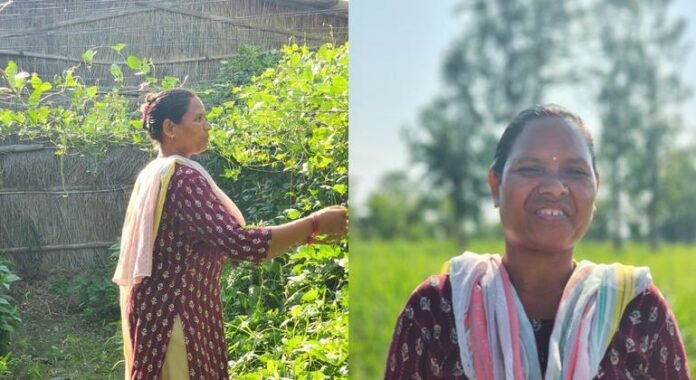In the north -east Nepal Balaouri Municipality, Nisha Devi Chowdhury’s morning begins with the garbage of vegetable leaves and a slow echo of a water motor.
There was a time when Nisha was completely dependent on her husband’s immigrant income.
However ‘strong woman, rich Nepal’ (EWPN) after receiving vocational training in vegetable cultivation under the program, he began to expand cabbage, pepper and tomato in one thousand square meters of fields.
Today he is earning about $ 260 to $ 300 per month and is now planning to lease the land to expand farming.
He proudly said, “Now I don’t have to wait for money from abroad. I earn with my own hands and take care of my family on my farm production.”
Decision
Due to EWPN, women are not only running business, they are also gaining the power to make decisions.
A group of 6 16 women in Belori are preparing the Traditional Sweet and Sweet near Shobha Lake, which they have been able to contact local tourism. This initiative not only gave him the source of income, but he also formed a shared savings and loan group.
Rita Chowdhury explained, “We store every month and decide how to carry the business together. It is not just a means of income – it is our unity and the ability to make decisions.”
Similarly, a group of 20 women from Bipganj are sewing school uniforms in a workshop built by a local ward office. This initiative is related to the Nepal government’s uniform distribution project, which is regularly earning income.
Khushbu Kumari Patel said, “Before that I used to earn a little. Now I work for the whole time – that is also with respect.
Identity from training
Until May 2025, under the EWLUPN Program, 569 women of 1,500 participants have been given technical and professional training certified by the Technical Education and Vocational Training Council (Technical Education and Vocational Training Council, CTEVT).
These include developing efficiency in fields such as agriculture, textile production, food processing and handicrafts. In addition, he was given great support for commercial advice, seed capital and connection to the market.
39% of women have started their income-creation activities so far or extending existing initiatives.
These women, mainly Dalits, tribes, Muslims, Madhesi and immigrant families – who have limited availability of land, education and resources.

Social change
Women have started earning, however, they have started raising their voices inside the house and in the community.
Saraswati Sunar of Birendranagar, who is now operating a combined yellow farm, says, “Ever since I started earning, I have started talking publicly at home and community meetings. Now I have heard.”
Dactor Khagis Khagis Acharya Karuki shared another intense change, “This is the same cottage where I had to be alone during the stru tusrub. Today it is my chicken farm – instead of my earnings and identity. EWPN not only gave me employment, but also gave me the courage to get out of stereotypes.”
From policy to behavior
EWPN is not simply limited to training – it is developing with local governments to ensure long -term and structural changes.
In Dhangari, the local government started the weekly women’s market with the help of EWLUPN, where the stall was provided to 75 female entrepreneurs from the informal sector. EWPN’s technical assistance assisted in this initiative in gender-covered design and operation, making it before solving the policy and becoming a real and strong economic opportunity for women.
Also, through the availability of equipment, digital finance training and inclusive planning processes, this program has established this program not only beneficiaries, but also as economic co-inflammation of their community.

The Patalganga Tharu community in Birendranagar stood in front of the Sushila Tharo.
When women lead
Sushila Tharu of Birendranagar, the Patalganga Tharu community is confidently laughing at the door of the Homestoy. In the last six years, this initiative is not just a means of income – it has become a symbol of their identity, dignity and community leadership.
The 18-day hospitality and Pak-Art training organized by the EWPN did not only give the Sushila and its companions to connect to tourism, but also showed ways to transform culture into self-reliance.
She proudly said, “Now I don’t need to ask for money from my husband. In this homestay we and our community showed that women get the chance when they get the chance – he does not walk together – he leads.”
This article is first Here Published.

